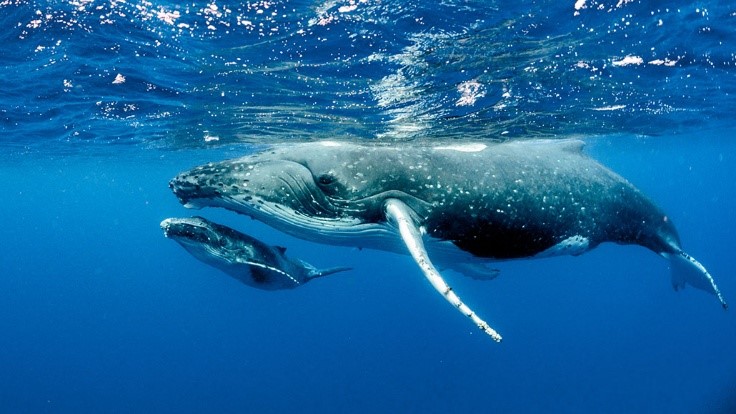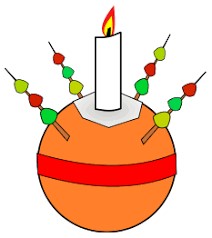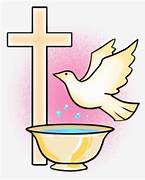Ocean

I grew up on, in, and under the Hauraki Gulf. It came with being a 4thgeneration Aucklander and a pre-bridge North Shore dweller. The sea was our playground, and from an early age I began to acquire the skills to enjoy it –swimming, diving, paddling, rowing, and sailing. We ‘mucked about’ in boats, indeed with anything that could float.
I also grew up with assumptions about the sea, some of which have changed over my lifetime. Chiefly, that it was always there, always available, always the same, and always would be. However, as those of us who have spent a lifetime by the sea know, the quality and the clarity of the water, the marine life, even the sand has changed significantly at many if not most of our beaches.
Nowadays I notice when drainage pipes run into the sea, and warning signs are put up after a heavy rain. I notice the decline in the critter and shell life population of the rock pools. Some beaches, regardless of signage, I hesitate to swim in. The idea that the sea would miraculously process our run-off, pollutants, even sewerage, and remain pristine, seems now, at best, naive.
Like with a large old pohutukawa tree holding a cliff intact, we need to care for our ocean and not presume it will always be and do as we imagine it’s always been and doing. Of course one way of caring for sea is caring for the trees along the shore. Without trees more sediment flows into our harbours, and with more sediment comes more diminution of marine life.
The reading today is that of the Good Samaritan, a parable familiar to most of us. I want you to imagine – to stretch your mind in imagining - the beaten man in the ditch (whom the parable never names – maybe he/she is emblematic of all who suffer?). I want you to stretch your mind to imagine the beaten one not as a human, but as the ocean. Imagine it is the ocean that is suffering. It is the ocean who has been set upon by robbers. It is the ocean that has been left dying –“robbed, beaten, and left half-dead,” as Luke puts it. And it is the ocean that the respected leaders of society, including religious leaders, then and now, have largely ignored and walked on by.
In the text, prior to the telling of the parable, there is a lawyer who “seeking to justify himself” (which infers a strategy of avoidance) approaches Jesus and asks, “Who is my neighbour?” Is the ocean my neighbour?
Jesus answers that question in two ways: Firstly, the neighbour is the one in need of help, of mercy. So, yes, the ocean is our neighbour. And secondly, the one who loves their neighbour (and remember the lawyer is asking for clarification of the Torah about loving neighbour) is the one who stops, helps, keeps on helping, and paying for it out of his pocket, until the injured neighbour is restored to health. It’s not a one-stop, quick-fix. And this one who “loves their neighbour” is a Samaritan.
The one who loves their neighbour is not like us (the audience), nor like those important people who walked on by. He’s different. Racially, religiously, other. Yet he is the one who has obeyed, is the exemplar of the command to ‘love your neighbour,’ the one who shows ongoing compassion and mercy by means of practical aid. He is the true neighbour to the neighbour in distress.
In terms of showing mercy to the half-dead ocean, the ‘Samaritan’ today could be many. It could be a child picking up plastic on a beach, or confronting their friends about buying plastic bottles. It could be small group of people who gettogether, call themselves “Heal the Hauraki” and get to work. It could be a local politician lobbying to prioritize drainage systems that don’t damage the ocean. It could be a fisherman, a scientist, a diver. It could be a person of religion, or no religion. To show mercy you don’t have to have any qualifications. Just eyes to see, a heart to feel, and hands to help.
I strongly recommend you to go to www.healthehauraki.com and watch the short videos they’ve created. You will notice in the korero two things that touch upon spirituality. Firstly, the ocean is not an ‘it’. They use personal pronouns, usually in English “She.” Which of course is an ancient designation in many cultures that planet Earth (71% being ocean) is our ‘mother’, our source. Much damage has been done in the ecological history of our planet by designating the ocean, like the land and forests, as objects to be used or misused, rather than subjects with rights and to whom we have responsibilities.
Secondly, they use the whakataukī (saying): "Ko au te moana, ko te moana koau", meaning "I am the ocean, the ocean is me". It expresses a deep connection and interdependence between humans and the natural world, specifically the ocean. It speaks to a sense of oneness and belonging, recognizing that we humans are intrinsically linked to the environment they inhabit.
In the early Jesus movements in order to both critique the norm of the hierarchical patriarchal family and create a new understanding of the bonds between each follower of Jesus, they called one another siblings, brothers and sisters. I think part of the spiritual challenge today is to both critique the dominant mythology that the Earth is an object for our use and to create new understandings of the bonds between all life on this planet. We need to change our language and to see ourselves and the ocean as ‘neighbours’, as ‘siblings’, as interdependent. To love your neighbour as yourself takes on a whole different meaning when our neighbour is the ocean.
++++++++++++++
Back in the pre-computer days, those of us who studied the Bible made use of concordances – weighty books that referenced almost each and every word in the Bible. So, if you looked up the word ‘ocean’ or ‘sea’, there would be a listing giving you the book, chapter, and verse where such words appear. Nowadays computers make it much simpler!
If you undertake such a task, you’ll discover that there are references to Noah’s Ark, to Jonah and his large fish, and to Jesus on Lake Galilee (Kinneret). Some are like Psalm 107:23-24 “Some went out on the sea in ships; they were merchants on the mighty waters. They saw the works of the LIFE, God’s wonderful deeds in the deep.” The ocean was a symbol of God’s mighty power, and the fear/respect that one therefore should hold God in.
The destructive power of the ocean was very real to fishing communities. To still the storm was the sign of a great prophet. The ocean, like other water sources, was also a symbol for cleansing. There is also reference to the ocean as a food source.
Hymns reflect similar theology. Like William Whiting’s hymn “Eternal Father, strong to save, Whose arm hath bound the restless wave, Who bid'st the mighty ocean deep, Its own appointed limits keep; O hear us when we cry to Thee, For those in peril on the sea.” The entire hymn shows a healthy respect for the dangers of the sea. But not much joy.
Poems tend to use the sea as a metaphor. Maybe one of the more well known is the Victorian Matthew Arnold’s “Dover Beach” where he laments the tide going out on English Christianity. Arnold suggests that without the anchor of faith, humanity is left in a state of confusion and suffering. This is the poem that Don Cupitt used as a title for his book and influential television series “Sea of Faith”. I’ve always thought the tide was a strange metaphor to use, and the poem rather gloomy.
There are some modern poems that invite us to consider the care and healing the ocean now needs:
The ocean breathes, a rhythm vast and deep,
Where ancient currents softly ebb and sweep.
But plastic threads, a choking, ghostly shroud,
Now tangle in its currents, whispered loud.
The coral reefs, once vibrant, gem-bright hues,
Now pale and stark, devoured by warmer dews.
The creatures swim, their fragile homes decay,
As human hands despoil, and steal away.
The storm surge rises, wild and uncontrolled,
A consequence of actions, bravely told.
Yet still, the ocean calls, a siren's plea,
For stewardship, for healing, wild and free.
The second reading today is the poem Trough by Judy Sorum Brown. It too uses the sea as a metaphor. But much more positively than Arnold. It talks about the troughs in life, about not being overwhelmed, the disciplines of stillness and waiting, and finding in time the way forward. Maybe this metaphor could now be turned to the enormous task of restoring the health of the oceans, and not being overwhelmed by the troughs of inaction and indifference.
Yet, in all my searching in Scripture, in songs and poems, even modern poems, I did not find the spirituality that explicitly invites us to imagine the sea as our neighbour, to be loved and cared for. Indeed, to see the ocean as a part of us, as connected to us, like a sibling, like a part of our own body even. The closest I found was another whakataukī (proverb): “Toitu te marae a Tane, Toitute marae a Tangaroa, Toitu te iwi.” If the realms of Tane (the forests) and Tangaroa (the ocean) are sustained and honoured, then so too will be the people. In other words our human wellbeing is intrinsically connected to the wellbeing of the land and the sea.
A number of you will have seen Sir David Attenborough's recent movie "Ocean." It highlights the vital importance of the ocean to our planet's health and the urgent need for its protection. The ocean is not just a vast body of water, but a vital life support system for the planet, regulating climate, providing oxygen, and supporting countless species. Yet this support system is suffering under the devastating impact of human activities like overfishing, bottom-trawling, and pollution. The film's core message is that the ocean is resilient and can recover if given the chance.
One of the hopeful messages in the movie is whales. It is estimated that 2.9 million whales were killed by the whaling industry in the 20thcentury alone. Scientists have said it is the largest cull of any animal in history when measured in terms of total biomass. It pushed almost all whale species to the edge of extinction. Just one per cent of Blue Whales were left. Recalls Sir David: “I remember thinking that was it. There was no coming back, we had lost the great whales.” But in 1986 lawmakers bowed to public pressure and banned commercial whaling worldwide. The whale population has rapidly recovered since then.
To restore our oceans will require an enormous effort. It will require us to join with all manner of people to dream, plan, and work together. It will also require us to undergo a spiritual change: to view the sea as our kin, our neighbour, like in today’s parable in need of mercy, help, and financial assistance. It will require us to view the sea as part of our physical body, our very life, and as such vital for our survival as a human species.




